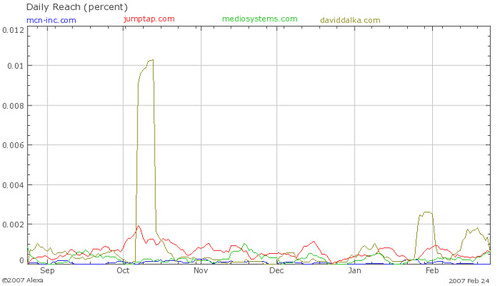At SES Chicago 2006, Tim Daly from SENTEC stated that it would be nice if “SEMPO became more than just a cocktail party” during a session on Search Arbitrage issues. It’s an interesting statement, but based on the recent election results for the board of directors it appears that Mr. Daly will not be influencing that opinion directly during 2007.
Well apparently SEMPO actually is more than a cocktail party as they released a research report the other day. They did not send me the report referenced here, but I find the following to be interesting:
- Marketers are even more reluctant to pay for mobile search as almost half of the respondents said they would not pay a premium for that technology.
- Almost 25 percent of respondents said they prefer to pay less for mobile search than for traditional search. About two-thirds said they were interested in contextually targeted advertising delivered to mobile search users.
Commentary: I recently used Linkedin Answers to ask the question, “In your opinion, who are the emerging start up leaders in providing mobile search marketing and related services?” The result? Nobody answered the question publicly and I got a ton of private answers saying “that is a good question”, “I don’t know yet”, etc. How can one make a judgment about the pricing of a medium if they do not have the complete value proposition and in many cases do not even know who the alternatives to traditional search engines are and how they are unique yet?
- “The reluctance to hike budgets for video and mobile search reflects the industry’s trend toward an overall pricing plateau,” the survey said. Twenty-five percent of the respondents reported they had reached their pricing ceiling for paid placement. Of the remaining 75 percent, half said the most they could afford in a price increase was 30 percent.
Commentary: Frequently new mediums take revenue streams from other existing mediums. Business history has some dramatic examples of how organizations did not adapt to change because they were afraid of cannibalizing existing revenue streams and it ultimately led to obsolescence. It is just one of a long list of reasons that this period of time is extremely exciting to me.
I didn’t see the survey during the answer gathering. I’m curious to know if “I don’t have enough information to answer that yet” was an option for the mobile search questions? Thanks.
